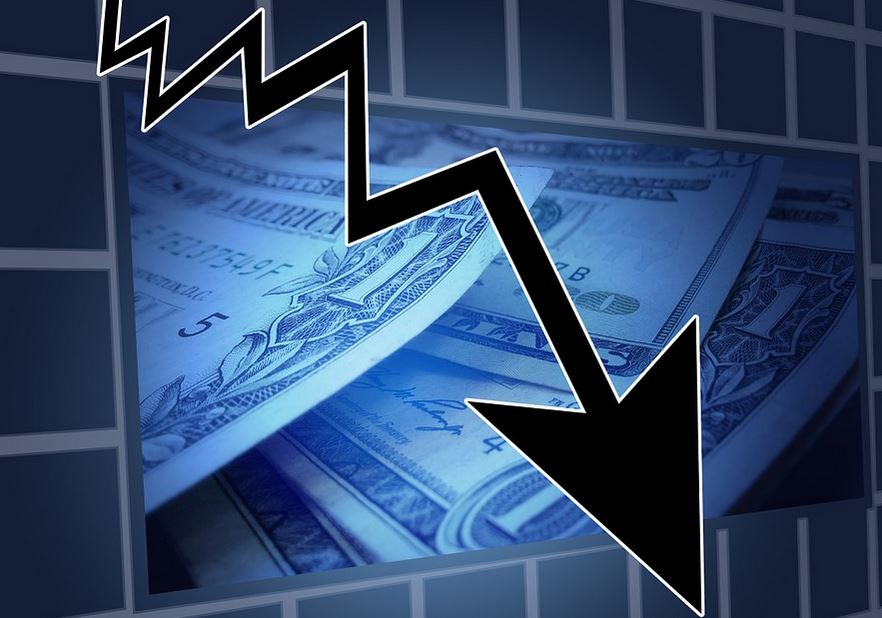Between the economic war with the United States and the slowdown in domestic demand, all sectors have been hit hard.

This is a growth rate that China has not seen since 1992. The Chinese economy grew by 6% in the third quarter, the lowest level in twenty-seven years, the National Institute of Statistics announced on Friday 18 October. In 2018, the country had recorded growth of 6.6%, but the authorities had anticipated the slowdown and had set a target of between 6 and 6.5% for 2019.
In any case, this target growth rate is expected to be achieved, even though the reliability of China’s official figures remains questionable. One thing is certain, the downward trend is clear: the first two quarters recorded growth of 6.4% and then 6.2%. And the slowdown is expected to continue. On 15 October, the International Monetary Fund lowered its forecast for Chinese growth to 5.8% in 2020.
After 30 years of exceptional growth, with China’s GDP almost quadrupling, this landing is not really a surprise for the observers. In addition to the trade war with the United States, which has been going on for a year and a half, the slowdown in China’s domestic market is also at stake. Over the past two years, Beijing has been fighting the over-indebtedness of companies and local governments, which has led to a drop in investment.
Most of the unrest in the Chinese economy is internal.
According to the National Statistical Office, “complicated conditions, both in China and abroad, the slowdown in global economic growth, and external uncertainties and instability, are exerting increasing downward pressure,” said its spokesman, Mao Shengyong, on Friday morning.
Most worrying are the figures for Chinese foreign trade for September, which were published on Monday, October 14. Given the trade war with the United States, exports fell by 3.2% in 2018, but the decline in imports (-8.5%) was even greater than expected. A panel of economists interviewed by Bloomberg predicted a decrease of 6%.
In other words, most of the unrest for the Chinese economy is domestic. “The impact of the economic war is not so great,” says Hao Hong, Director of Strategy at BoCom, the brokerage firm of the Communications Bank. The United States’ share of Chinese exports is not so high. Imports have fallen the most. This means that domestic demand is declining very rapidly. This is the most worrying: it is due to the weak growth of wages this year, because the prospects for next year are not very good.
The automotive and agriculture sectors the most hit
All sectors of the economy have been hit hard. The most hit was the automotive industry: between September 2017 and 2019, the number of new car registrations fell by 17%. Agriculture the second sector hardest hit is facing the African swine fever crisis, which has destroyed much of China’s pig production. Pig prices exploded by 69% in September last year, an increase that pushed inflation up to 3% in September, putting a little more pressure on China’s purchasing power.
In response to the general slowdown, the Chinese authorities have taken several measures to support the economy since the beginning of the year. They have increased investment in infrastructure and reduced payroll taxes. On Wednesday, October 16, the People’s Bank of China also announced an injection of 200 billion yuan (27.7 billion USD) into the financial system to increase liquidity in the financial markets through loans to banks.
On Tuesday, before some Chinese provincial governors, Prime Minister Li Keqiang made an uncompromising remark: “The downward pressure is increasing and many economic entities are suffering from very weak domestic demand,” he said, before asking local leaders to “put growth at the top of their agenda.
While it will not solve everything, ending trade disputes with the United States would help China greatly. On October 11, the two countries outlined a trade agreement to stop the escalation of tariffs on $350 billion worth of Chinese and US products. The agreement could be sealed by President Xi Jinping and his American counterpart, Donald Trump, at the summit of the Asia-Pacific Economic Cooperation (APEC) in Chile in mid-November.



